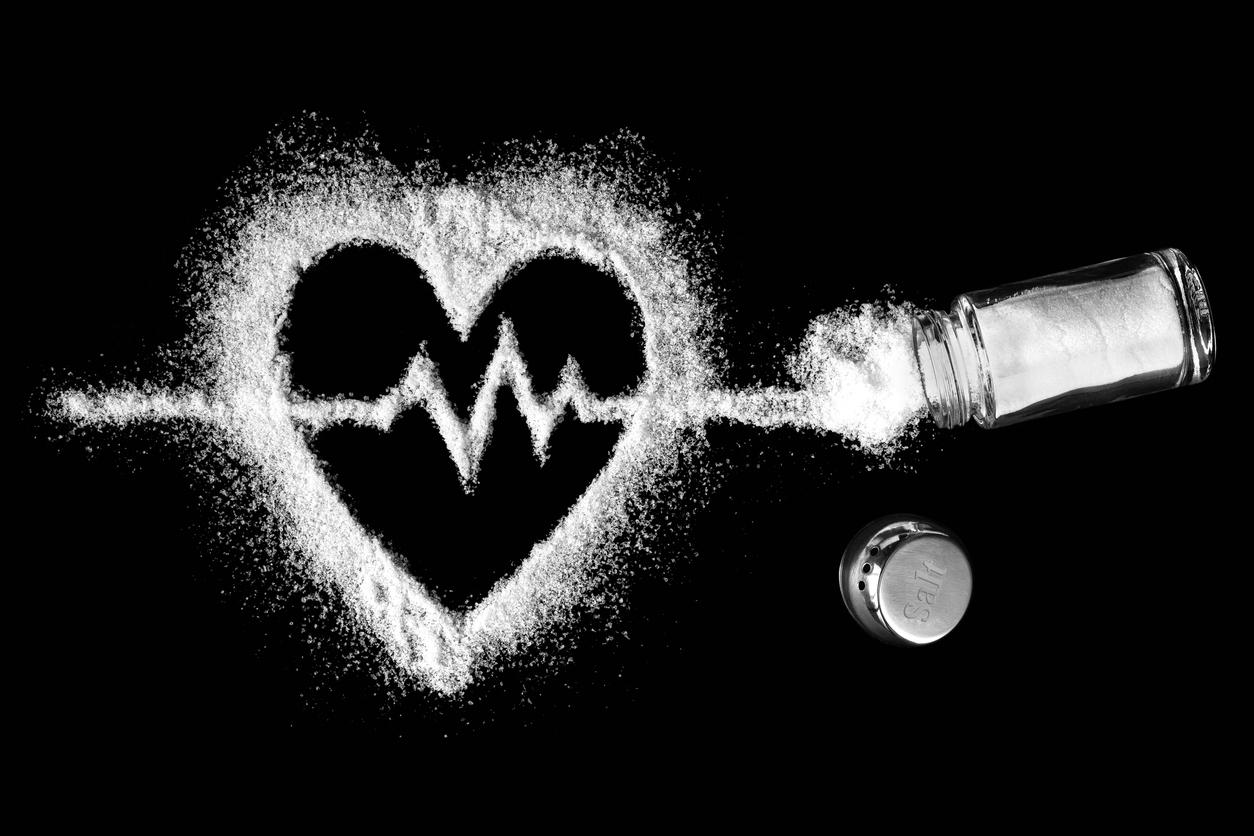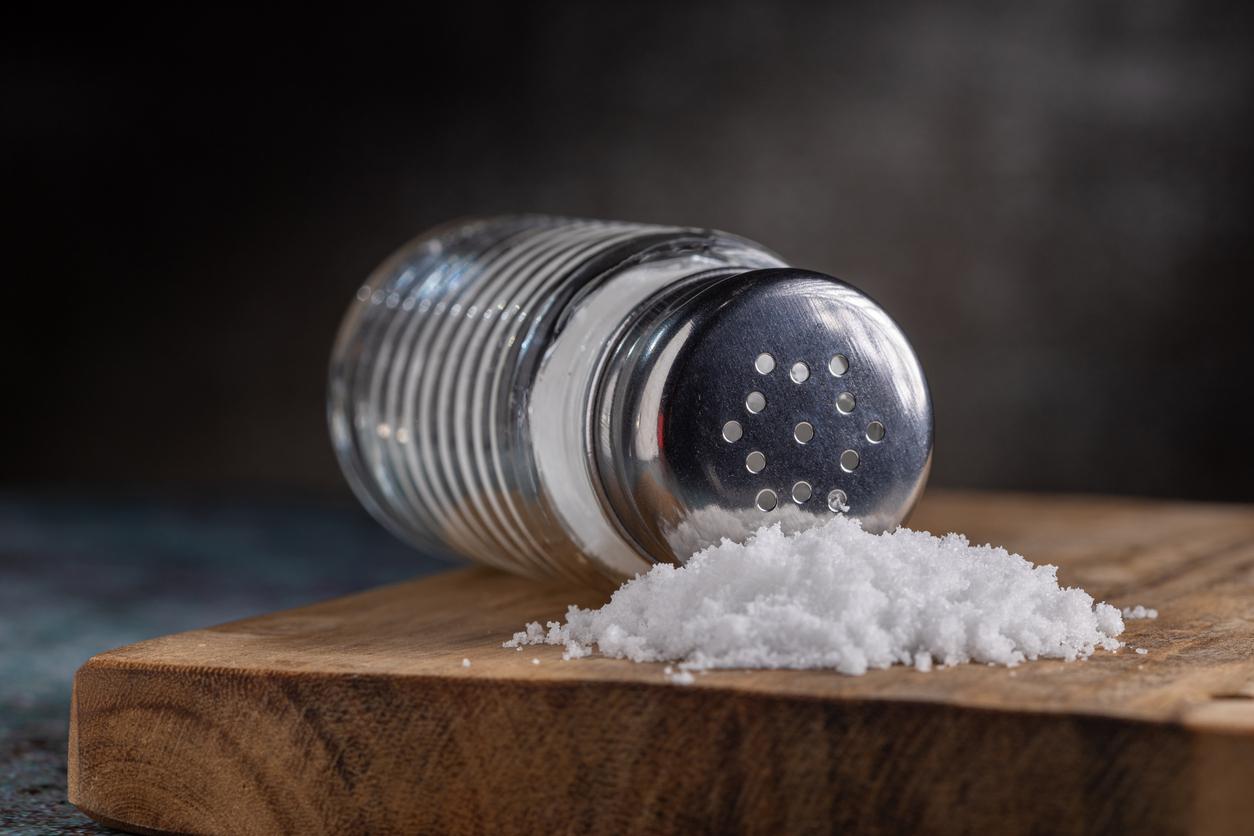Excessive salt intake is linked to clogged arteries in the heart and neck, a condition called atherosclerosis.

- Excessive salt intake is linked to clogged arteries in the heart and neck.
- This pathology, called atherosclerosis, is known to increase the risk of heart disease, heart attack and stroke.
- The harmful effect of excess salt on the arteries was also visible in participants without hypertension. Thus, the researchers call on everyone to pay attention to their salt intake and not to exceed the equivalent of one teaspoon per day.
If you have a diet that is too salty, you are more likely to develop obstruction of the arteries of the heart and neck by the deposit of plaques composed mainly of lipids. This disorder, called atherosclerosis, is associated with an increased risk of heart attack and stroke.
These are the conclusions of a study published in the journal European Heart Journal – OpenMarch 31, 2023.
Eating too much salt increases the risk of atherosclerosis
To determine the link between salt intake and the risk of atherosclerosis, the researchers took the medical records of 10,778 adults aged 50 to 64 who participated in the Swedish CArdioPulmonary bioImage study. The average age of the participants was 58 years old and 52% were women.
The volunteers’ salt intake was assessed through urinalysis. Angiograms were also performed to determine the condition of their heart arteries. The researchers determined the association between progressive increases in salt intake and atherosclerosis after adjusting for age, sex and study site.
They found that an increase in salt intake was linked to a progressive increase in atherosclerosis in the arteries of the neck and heart. Each 1000 mg increase in sodium excretion was associated with a 3% higher chance of having carotid plaques. In addition, the artery calcification and coronary artery stenosis scores both increased by 4%. These 3 elements are signs of pathology.
“The association was linear, meaning that each increase in salt intake was linked to an increase in atherosclerosis. The results even apply to normal blood pressure levels, suggesting that salt may be harmful even before the development of hypertension”notes the author of the study, Dr. Jonas Wuopio of the Karolinska Institutet (Sweden).
Too much salt is bad for the arteries, even without hypertension
For researchers, the higher the amount of salt ingested, the greater the harmful effects of atherosclerotic plaques, present in the arteries of the heart and neck, are important. They note that increased blood pressure due to high salt intake appears to be an important underlying mechanism for these findings. “Interestingly, the results were consistent when we restricted our analyzes to participants with normal blood pressure (below 140/90 mmHg) or those without known cardiovascular disease. hypertension or heart disease who must monitor their salt intake”adds the expert.
This work shows the importance of limiting salt consumption to around one teaspoon per day. However, Dr. Wuopio acknowledges that it can be difficult to estimate the amount of salt absorbed at meals.
He confides: “II have two tips to help reduce consumption. One is to limit the use of table salt, as it has been linked to cardiovascular health. The second is to replace the salt, which is 100% sodium chloride, with a salt substitute containing 70-80% sodium chloride and 20-30% potassium chloride. Well-conducted studies have shown that this approach is beneficial for heart health.”

















